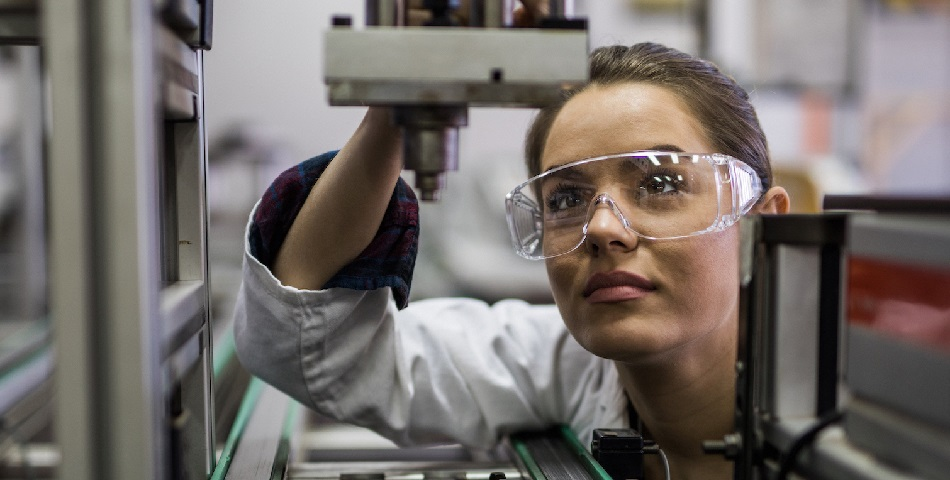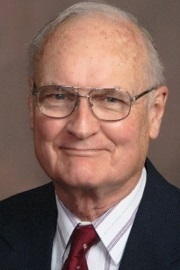
In this interview, AZoM talks to Dr. Carl Frahme of The American Ceramic Society about his "Introduction to Ceramic Science, Technology, and Manufacturing" course.
Please tell us a little bit about yourself and your background.
I have been active in the ceramics and materials-related industries for over five decades, including R&D, product development, management, sales and marketing, consulting, and education. I was a co-founder of the Ceramic Correspondence Institute (CCI) in 1972, offering practical education to personnel in the ceramic industry who had no formal training in ceramic technology. I established my consulting business, Frahme Consulting Services, in 1987. My consulting assignments have included:
- Developing porcelain quality tile products from 100% waste mineral and mine tailings via a very novel process. This was undertaken as part of a project to reopen a large underground gold mine in California.
- Evaluation of military materials technologies developed by a former USSR research facility in Kiev, Ukraine. Materials evaluated included titanium-silicon eutectic alloys for battlefield tank diesel engines; poly-paraphenylene terephthalamide (Kevlar aramid) coated tungsten yarn used to make military protective fabrics to defeat knives, bayonets, and swords; basalt fibers and cast parts; and evaluation of scandium-aluminum superalloys for aerospace and military jet applications. Other
- Production of foamed glass from waste container glass to replace pumice in stone washing blue jeans.
- Providing technology for vacuum-forming refractory ceramic fiber products.
- Technical support for a major company in developing additive manufacturing of ceramic investment casting molds for turbine blades.
- A variety of expert witness assignments for legal cases.
During my career I have been teaching part-time with CCI, UCLA, Pasadena City College, The American Ceramic Society, ASM International, The Center for Professional Advancement, and most recently for ten years at the University of Kansas, teaching a variety of materials science and related courses.
I hold a Ph.D. in ceramic science and engineering from Rutgers- The State University and a BS in metallurgical engineering from Case Institute of Technology (now Case Western Reserve University.
What do you currently do?
I am currently teaching and developing online courses in ceramic technology for The American Ceramic Society (ACerS) and continuing my consulting activities.
Tell us about the Introduction to Ceramic Science, Technology, and Manufacturing course.
This course has been developed under the auspices of ACerS and is being taught online on a regular basis. It includes five modules and 27 lessons and involves about 36 hours of online, live instruction hours. The five modules are:
- Module I: Introduction to Ceramic Science
- Module II: Ceramic Manufacturing Technology
- Module III: The Ceramic Industry (covers five major segments of the industry)
- Module IV: Evaluation and Process Control
- Module V: Competitive Materials, Challenges, and the Future
Why would someone want to take an online class?
This is a very convenient way to learn new technology without travel. Ceramic technology has and continues to see rapid change, and personnel in the industry must keep abreast.

What types of people take the course?
A surprisingly varied group of people have taken this course, including manufacturing personnel (managers, foremen, supervisors, technicians), and maintenance, sales, and marketing personnel, R&D personnel, QA and SPC personnel, general managers, non-ceramic engineers, and serious studio artists.
What are some of the comments people say about the course?
A recent (lengthy) comment was;
Hi Dr. Frahme,
Thanks for a great intro course! I really enjoyed it and I learned quite a bit of new information. In terms of the presentation, I was very happy with it. I think Adobe Connect was effective with allowing us to see your video presentation along with the slide presentation live and at the same time. I also liked how we had the choice of using our microphones or typing in the chat for questions and comments. The best part to me was being able to have access to the recorded lectures—this was great for when I was unable to attend the live lectures.
Additional comments have been:
This course has been extremely helpful in broadening my knowledge of ceramic science and can help me understand and possibly contribute to some of the issues my team runs into."
"I feel the topics that really shed light on problems we are currently experiencing were those leading up to actually firing product."
"The program has provided me with tools that can help me improve the performance of my organization. I would recommend the program without reservation."
When is the next class?
The next class begins online on Thursday, March 26, 2020, each Tuesday and Thursday 10:30 a.m. to 12:30 p.m. for nine weeks. The course is also scheduled to begin on October 6, 2020. The course has also been taught on a private, company dedicated basis and is available in a pre-recorded format as well. All classes are recorded for the convenience of students who need to miss a class, for example, because of work duties. We can accommodate students who register after the starting date, that way, too.
What plans do you have to develop future classes?
A new course, Ceramic Manufacturing Technology, is currently under development. Statistical Process Control for Ceramic Manufacturing will be taught live in association with Ceramics Expo in Cleveland in September 2020 and will be available online in the future.
How can someone register for the class?
You can register online at https://ceramics.org and specifically at https://myacers.ceramics.org. Information on the course is available at https://ceramics.org.
About Dr. Carl Frahme

Carl Frahme, ACerS Fellow, owns a consulting firm focusing in three areas: technical and manufacturing consulting, education and training, and expert witness services. He also teaches material science as an adjunct for the University of Kansas. Frahme has more than 50 years of technical and educational experience and services.
Frahme holds a Ph.D. in ceramic sciences and engineering from Rutgers University.
Disclaimer: The views expressed here are those of the interviewee and do not necessarily represent the views of AZoM.com Limited (T/A) AZoNetwork, the owner and operator of this website. This disclaimer forms part of the Terms and Conditions of use of this website.